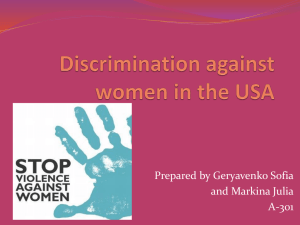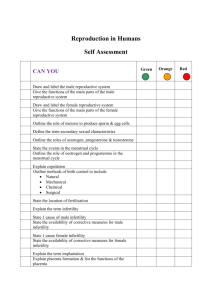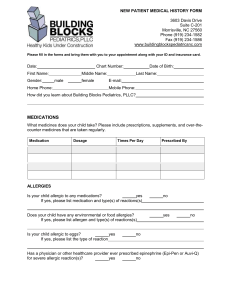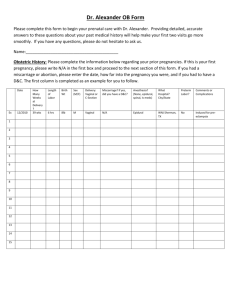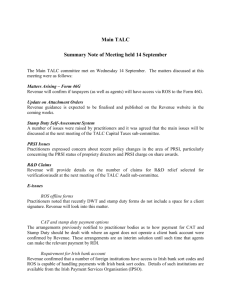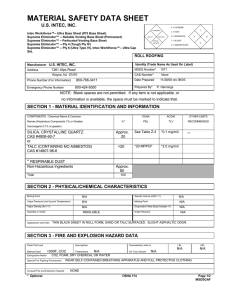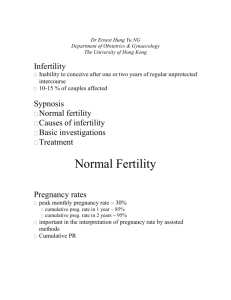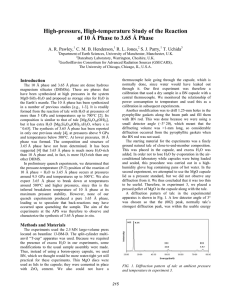Table 1: Data elements in telephone questionnaire, the African
advertisement
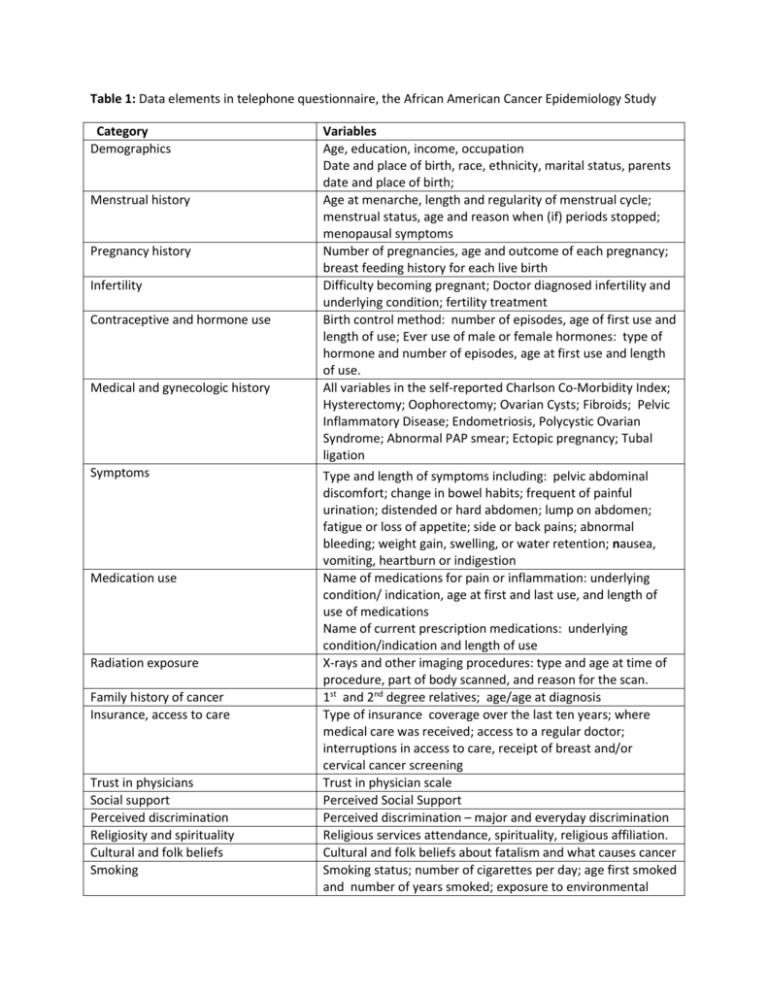
Table 1: Data elements in telephone questionnaire, the African American Cancer Epidemiology Study Category Demographics Menstrual history Pregnancy history Infertility Contraceptive and hormone use Medical and gynecologic history Symptoms Medication use Radiation exposure Family history of cancer Insurance, access to care Trust in physicians Social support Perceived discrimination Religiosity and spirituality Cultural and folk beliefs Smoking Variables Age, education, income, occupation Date and place of birth, race, ethnicity, marital status, parents date and place of birth; Age at menarche, length and regularity of menstrual cycle; menstrual status, age and reason when (if) periods stopped; menopausal symptoms Number of pregnancies, age and outcome of each pregnancy; breast feeding history for each live birth Difficulty becoming pregnant; Doctor diagnosed infertility and underlying condition; fertility treatment Birth control method: number of episodes, age of first use and length of use; Ever use of male or female hormones: type of hormone and number of episodes, age at first use and length of use. All variables in the self-reported Charlson Co-Morbidity Index; Hysterectomy; Oophorectomy; Ovarian Cysts; Fibroids; Pelvic Inflammatory Disease; Endometriosis, Polycystic Ovarian Syndrome; Abnormal PAP smear; Ectopic pregnancy; Tubal ligation Type and length of symptoms including: pelvic abdominal discomfort; change in bowel habits; frequent of painful urination; distended or hard abdomen; lump on abdomen; fatigue or loss of appetite; side or back pains; abnormal bleeding; weight gain, swelling, or water retention; nausea, vomiting, heartburn or indigestion Name of medications for pain or inflammation: underlying condition/ indication, age at first and last use, and length of use of medications Name of current prescription medications: underlying condition/indication and length of use X-rays and other imaging procedures: type and age at time of procedure, part of body scanned, and reason for the scan. 1st and 2nd degree relatives; age/age at diagnosis Type of insurance coverage over the last ten years; where medical care was received; access to a regular doctor; interruptions in access to care, receipt of breast and/or cervical cancer screening Trust in physician scale Perceived Social Support Perceived discrimination – major and everyday discrimination Religious services attendance, spirituality, religious affiliation. Cultural and folk beliefs about fatalism and what causes cancer Smoking status; number of cigarettes per day; age first smoked and number of years smoked; exposure to environmental Sun exposure Talc use Height and weight Physical activity smoke Time spent outdoors by season: summer or spring/winter/fall; Skin effects Regular use of cornstarch, talc, baby or deodorizing powders; age at first use, frequency of use and duration of use, use by sexual partner; occupational exposure to talc or asbestos; lived with someone who worked with talc or asbestos Self-reported current height and weight; weight gain and loss history; weight at age 18. Average weekly exercise during the last 12 months (based on International Physical Activity Questionnaire – Short Form); job-related physical activity

